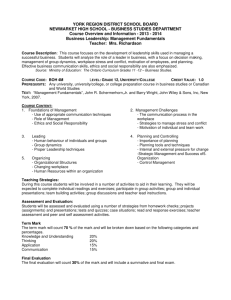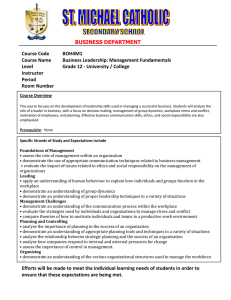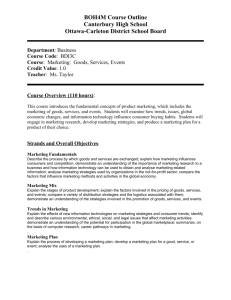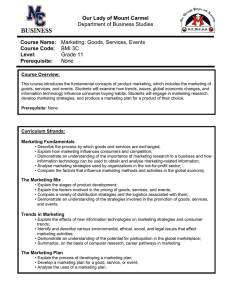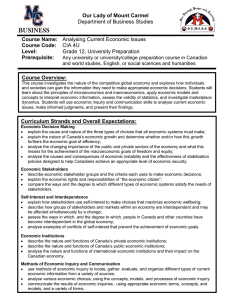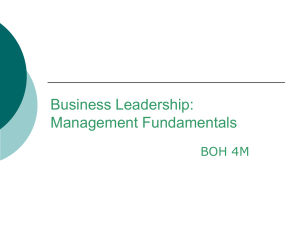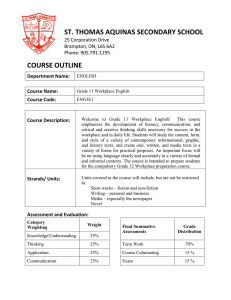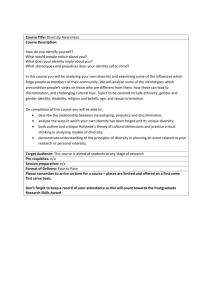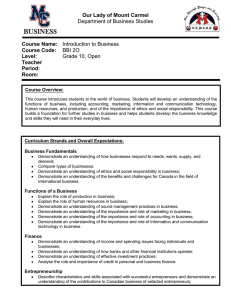Department of Business Studies Grade 12, University/College Prep
advertisement
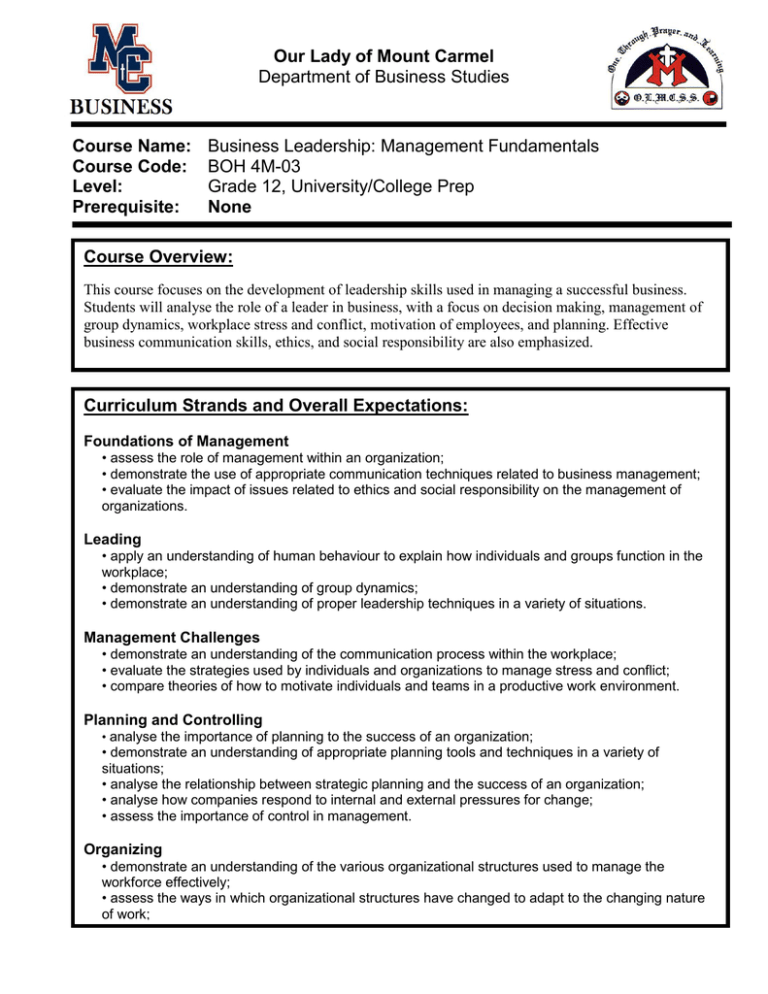
Our Lady of Mount Carmel Department of Business Studies Course Name: Course Code: Level: Prerequisite: Business Leadership: Management Fundamentals BOH 4M-03 Grade 12, University/College Prep None Course Overview: This course focuses on the development of leadership skills used in managing a successful business. Students will analyse the role of a leader in business, with a focus on decision making, management of group dynamics, workplace stress and conflict, motivation of employees, and planning. Effective business communication skills, ethics, and social responsibility are also emphasized. Curriculum Strands and Overall Expectations: Foundations of Management • assess the role of management within an organization; • demonstrate the use of appropriate communication techniques related to business management; • evaluate the impact of issues related to ethics and social responsibility on the management of organizations. Leading • apply an understanding of human behaviour to explain how individuals and groups function in the workplace; • demonstrate an understanding of group dynamics; • demonstrate an understanding of proper leadership techniques in a variety of situations. Management Challenges • demonstrate an understanding of the communication process within the workplace; • evaluate the strategies used by individuals and organizations to manage stress and conflict; • compare theories of how to motivate individuals and teams in a productive work environment. Planning and Controlling • analyse the importance of planning to the success of an organization; • demonstrate an understanding of appropriate planning tools and techniques in a variety of situations; • analyse the relationship between strategic planning and the success of an organization; • analyse how companies respond to internal and external pressures for change; • assess the importance of control in management. Organizing • demonstrate an understanding of the various organizational structures used to manage the workforce effectively; • assess the ways in which organizational structures have changed to adapt to the changing nature of work; • evaluate the role of human resources within an organization. Assessment and Evaluation: Course Breakdown Unit 1: Foundations of Management Management Fundamentals Business Communication Issues of Ethics and Social Responsibility Unit 4: Planning and Controlling The Importance of Planning Planning Tools and Techniques Strategic Planning The Management of Change Controlling Students will be assessed & evaluated according to the work produced & skills displayed. Methods of providing feedback may include assessing work in process & evaluating completed assignments, quizzes, tests, cooperative learning activities, research, and presentations. Category Weightings:: Unit 2: Leading Human behaviour Knowledge/Understanding Group dynamics Summative towards the end of theThinking/Inquiry course and may include any Unit 5: Organizing Leadership Assessment techniques will be administered Communication items: portfolio of computer work, final project, other culminating activities, and a final examination. Organizational Structures Application Unit 3: Management Challenges The Communication Process in the Workplace Stress and Conflict Management Motivation The Changing Nature of Work Human Resources 30% 25% of the 20% 25% following The above is reflected both in the term work (worth 70% of the final mark) and the summative work (worth 30% of the final mark). Summative work consists of the Final Exam (30%) Achievement Categories: Knowledge/ Understanding Thinking/Inquiry knowledge of facts and terms critical and creative thinking skills (e.g., evaluating business situations; analysing financial data and solving business problems; making decisions) understanding of concepts, principles, and theories understanding of relationships between concepts and ideas inquiry skills (e.g., generating ideas; formulating questions; planning; selecting strategies and resources; analysing, interpreting, and assessing information; forming conclusions) Communication communication of information and ideas (e.g., through writing, visual and oral presentations) use of language, symbols, and visuals communication for different audiences and purposes (e.g., choice of language and style relevant to business environments) Application application of concepts, skills, and procedures in familiar contexts transfer of concepts, skills, and procedures to new contexts use of equipment, materials, and technology application of technology (e.g. choice of tools and software, ethical use) making connections (e.g. between use of various forms of personal experiences and the communication (e.g., memos, subject, between the subjects and letters, reports) the world outside the school Feedback will also be provided for student learning skills. Skills like working independently, team work, organization, work habits and homework, and initiative are assessed independently student achievement and will be conducted through the use of a rubric indicating specific criteria to be achieved to receive each of the following letter grades: E –Excellent G – Good S – Satisfactory N - Needs Improvement Achievement Levels: Level 1: 50 – 59% Limited knowledge and/or success Level 2: 60 – 69% Some knowledge and/or success Level 3: 70 – 79% Considerable knowledge and/or success Level 4: 80 – 100% Thorough understanding & mastery of skills Please refer to your student agenda for the following policies: Evaluation Attendance Uniform Student Textbook: Student: (print name) __________________________ Signature: ____________________________ Parent/Guardian Signature: ___________________________ Date: ____________________________
